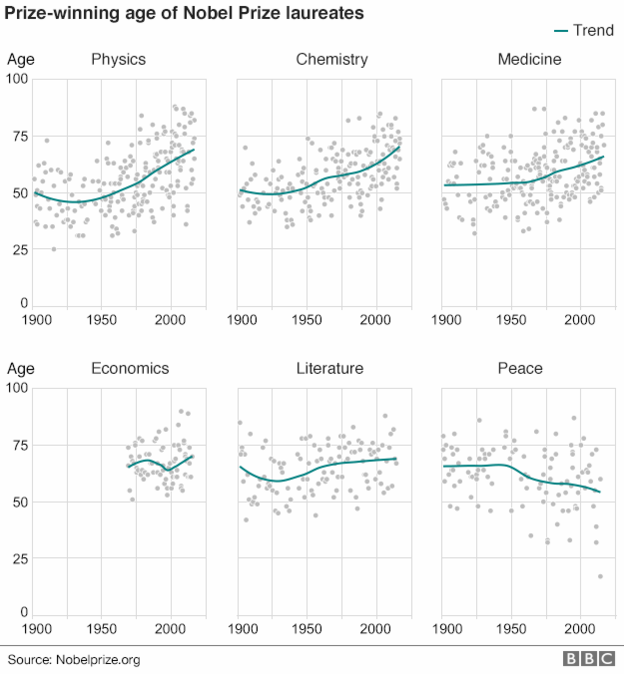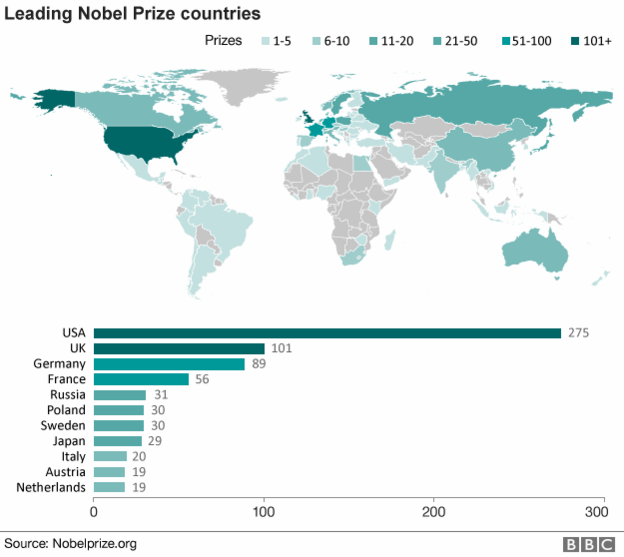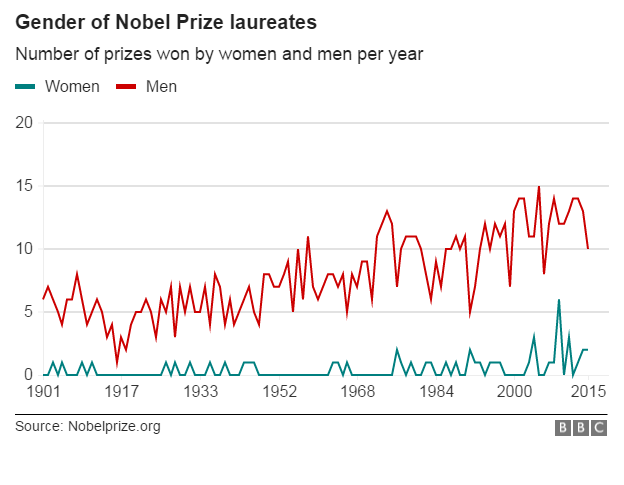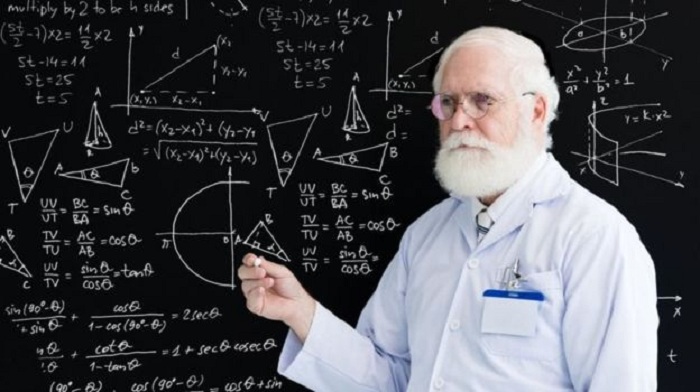Go back to the first half of the 20th Century, however, and the average laureate was "only" 56. Physics laureates, now typically a group of men in their late-sixties, used to have an average age of 47.
In fact, in all of the traditional sciences there has been a significant trend of Nobel laureates winning prizes later in life, starting from around the 1950s and continuing into the present day.

You often hear stories that such and such a writer or philosopher from hundreds of years ago was the last person to have read every book.
Dubious though this may be, knowledge has certainly ballooned. Could there be so much information and theory today that scientific breakthroughs happen only in old age?
That is probably not the answer.
Gustav Källstrand, a senior curator at the Nobel Museum, told us that 100 years ago there were only around 1,000 physicists. Today there are an estimated one million in the world.
"So this is one important factor. The waiting time for getting a Nobel Prize is getting longer and you do not get a prize immediately after a breakthrough," he said.
Even now scientists make discoveries early on in life, but with thousands of others doing the same, and with the Nobel Prize committee requiring such a high standard of validation, it can take many years to win an award.
But the question still niggles. There are also thousands more writers, economists and people working for peace than there were 100 years ago. Their ageing trends are quite different. And why is it that physics laureates are greying faster than their peers in medicine?

Map showing the leading Nobel Prize countries
It could all come down to the scientific revolution in the early 20th Century, brought on by the burgeoning field of quantum mechanics.
Mr Källstrand notes that "physics in the first half of the century was a rapidly growing field; many physicists were young and they were making discoveries quickly."
And the Nobel committee knew it.
"The committee were on to this. It was a field they were interested in and they were recognising achievements fast," he said.
Werner Heisenberg (later the inspiration for an alias in Breaking Bad) and Paul Dirac were only 31 when they became Nobel laureates in physics in the 1930s, both for work on quantum mechanics.
It was like discovering a new toolkit which could quickly yield discoveries. Or, less charitably, as one scientist said: "mediocre physicists could discover great physics".
As for why Peace Prize laureates are bucking the trend of ageing, Mr Källstrand says the prize is now very different.
"The peace prize committee try to be more up to date. They don`t wait to see if peace measures will succeed completely, or if, say, democracy will last in Indonesia."
The slowest revolution
Despite all of the changes in science and humanitarian work, there is one thing you can rely on: Nobel laureates will be overwhelmingly male.
As the booming scientific population keeps would-be laureates waiting years for prizes, it also means the currently lopsided male to female ratio reflects how the world looked decades ago.

Chart showing the ration of male to femal Nobel Prize laureates
Men are still vastly overrepresented in science, but as diversity improves and the backlog for prizes clears, equal representation may eventually become a reality.
The Nobel Museum assured us that while there are no records of the panel intentionally overlooking work from women, there is one story of them bending the rules.
When in 1903 Marie Curie was not nominated for the Nobel Prize, her husband and joint researcher in radiation protested and refused to accept an award. On a technicality, the panel went on to accept her late submission from 1902 and she became the first woman to win a Nobel Prize.
















































